Probiotics and Dissociation: Exploring the Gut–Brain Axis
Introduction
When you live with dissociation, it can feel like your mind and body are speaking two different languages. You may feel disconnected from physical sensations, emotionally flat, or trapped in cycles of anxiety and numbness. For years, this was thought to be purely psychological — but new research shows a deep biological link between the gut and the brain that may explain why dissociation feels like disconnection from within.
At the center of this connection is something astonishingly simple: your gut microbiome — the trillions of bacteria living inside your digestive tract. These microbes aren’t just passengers; they help regulate mood, inflammation, immunity, and even neurotransmitter production. In fact, your gut produces over 90% of your body’s serotonin, the very chemical that supports emotional balance and presence.
When the gut ecosystem is disrupted — by stress, trauma, antibiotics, or poor diet — the communication between gut and brain breaks down. The result? Mental fog, emotional instability, and disconnection that mirror the symptoms of dissociation.
This article explores how the gut–brain axis influences dissociation, the science behind probiotics (beneficial bacteria) in nervous system regulation, and how nurturing your microbiome may help restore connection between mind and body 🌱.
Looking for supplements for This? Click here.
Dissociation: A Nervous System in Survival Mode 🌫️
Dissociation occurs when your nervous system perceives overwhelming stress and shifts into freeze mode, shutting down awareness to protect you. In this state, the body feels distant, time slows down, and emotions fade. It’s not a flaw — it’s a deeply intelligent survival mechanism.
However, when this response becomes chronic, your body remains stuck in a low-energy, disconnected state. The autonomic nervous system, which governs digestion, immunity, and heart rate, becomes dysregulated. One key player in this system is the vagus nerve, which connects the brainstem to the gut.
When trauma or prolonged stress weakens vagal tone, the gut suffers. Digestion slows, inflammation rises, and the balance of gut bacteria shifts — a condition known as dysbiosis. This imbalance doesn’t just affect digestion — it feeds back into the brain, amplifying stress signals and perpetuating emotional detachment.
In short, the gut and brain are constantly talking. When the conversation breaks down, both suffer — and dissociation may be one of the ways your body tries to cope.
The Gut–Brain Axis: A Two-Way Conversation 🧬

The gut and brain communicate through a network known as the gut–brain axis, which includes the vagus nerve, hormones, immune molecules, and microbial metabolites.
When the gut microbiome is balanced, this communication supports calm, clarity, and emotional stability. But when dysbiosis occurs, inflammatory signals travel from the gut to the brain, altering neurotransmitter levels and affecting mood regulation.
Key pathways include:
The Vagus Nerve — A bi-directional superhighway connecting your gut and brain. Gut bacteria can stimulate vagus nerve activity, influencing mood and stress resilience.
Neurotransmitter Production — Many gut bacteria synthesize neurotransmitters like serotonin, dopamine, and GABA, which regulate mood and awareness.
Immune System Modulation — The gut houses about 70% of the immune system. When inflamed, it releases cytokines that can cross the blood-brain barrier, causing fatigue and mental fog.
The HPA Axis — Chronic gut inflammation can overactivate the stress response, keeping cortisol high and contributing to the energy depletion associated with dissociation.
The gut–brain axis explains why digestive health and emotional health are inseparable — and why probiotics may help restore harmony where talk therapy alone cannot reach.
The Microbiome and Trauma 🧠💔
Research shows that chronic stress and trauma alter the gut microbiome, reducing diversity and increasing harmful bacteria. This imbalance can lead to inflammation, leaky gut, and impaired serotonin production.
A 2017 study in Nature Microbiology found that mice exposed to chronic stress had profound changes in gut bacteria, which directly correlated with anxiety and avoidance behavior. When their microbiome was restored through probiotics, their emotional resilience improved.
In humans, similar patterns appear: trauma survivors often have lower levels of beneficial bacteria like Lactobacillus and Bifidobacterium, both of which are linked to mood and cognitive health. These bacteria produce short-chain fatty acids (SCFAs) such as butyrate, which nourish the intestinal lining and calm the immune system.
When SCFA levels drop, inflammation rises — and the body remains in “danger mode.” This keeps the vagus nerve underactive and the brain locked in a defensive dissociative state.
Restoring microbial balance with probiotics can help reintroduce safety signals to the body, letting the brain know it’s okay to reconnect.
Serotonin: The Bridge Between Gut and Mind 🌸
Serotonin is often thought of as a brain chemical, but about 90–95% of it is produced in the gut. The cells lining your intestines (enterocytes) release serotonin in response to certain nutrients — and to signals from beneficial bacteria.
For example, Bifidobacterium infantis and Lactobacillus rhamnosus are known to increase serotonin production. These microbes also influence the expression of tryptophan hydroxylase, the enzyme that converts tryptophan (an amino acid) into serotonin.
When the microbiome is healthy, serotonin levels rise naturally. When it’s imbalanced, serotonin synthesis drops, contributing to mood flattening, low motivation, and sleep disruption — all of which worsen dissociative symptoms.
Supporting gut serotonin through probiotics and prebiotic fibers helps not only digestion but also emotional reconnection, reducing that sense of “floating through life.”
Probiotics: Rebuilding the Gut–Brain Conversation 🌿
Probiotics are live microorganisms that, when consumed in adequate amounts, provide health benefits — particularly by restoring microbial balance in the gut.
Not all probiotics are equal, and their effects depend on the strains used. Some are better for immune regulation, others for mood, inflammation, or cognitive clarity.
When it comes to dissociation, research highlights several strains that support both gut integrity and emotional regulation:
Lactobacillus rhamnosus (JB-1): Known for its powerful effects on the vagus nerve. Studies show it reduces anxiety, stabilizes cortisol, and promotes GABA receptor expression in the brain — helping the body shift from hypervigilance to calm presence.
Bifidobacterium longum (1714): Enhances mental clarity, reduces stress perception, and supports hippocampal function (a brain area impaired by trauma).
Lactobacillus helveticus R0052 and Bifidobacterium bifidum R0071: This combination has been shown to lower psychological distress and improve mood in clinical studies.
Bifidobacterium infantis: Balances serotonin metabolism and reduces inflammatory cytokines that contribute to brain fog and low mood.
Lactobacillus plantarum: Helps repair the gut lining and reduces permeability (“leaky gut”), preventing inflammatory molecules from reaching the brain.
By replenishing these strains, probiotics help reestablish communication between gut and brain — a biological foundation for emotional safety.
Inflammation, Dissociation, and the Gut 🩸
Inflammation plays a major role in maintaining dissociative symptoms. Chronic inflammation keeps the brain’s microglia (immune cells) in a state of activation, impairing connectivity in brain regions responsible for awareness, empathy, and integration.
When gut bacteria become imbalanced, the intestinal lining can become permeable — a condition known as leaky gut. This allows bacterial toxins like lipopolysaccharides (LPS) to enter the bloodstream, triggering inflammation throughout the body and brain.
High LPS levels are associated with fatigue, brain fog, and mood disorders. In trauma survivors, this inflammation can reinforce the neural patterns of emotional numbness and detachment.
Probiotics, especially those that produce butyrate, help seal the gut barrier and reduce systemic inflammation. As inflammation subsides, energy improves, and the nervous system becomes more flexible — better able to feel and recover without collapsing into shutdown.
The Role of the Vagus Nerve in Gut–Brain Healing 🌬️
The vagus nerve is like a bridge between your inner world and the outside one. It carries information from the gut to the brain and back, influencing digestion, mood, and even immune response.
A healthy microbiome stimulates vagus nerve activity, sending signals of calm and safety to the brain. When the vagus nerve is underactive, the body stays stuck in freeze mode — disconnected from both physical sensation and emotion.
Probiotics like Lactobacillus rhamnosus JB-1 and Bifidobacterium longum 1714 directly increase vagal tone. When combined with breathwork, yoga, or cold exposure, this creates a powerful feedback loop: the body learns to shift naturally from defense to connection.
This vagal activation is one reason many people feel a surprising sense of calm and “aliveness” after several weeks of consistent probiotic use. The body literally begins to re-communicate with itself.
Want to try Breathwork? Click Here.
The Gut–Immune–Mood Triad 🛡️
The gut is not only the home of your microbiome but also the training ground for your immune system. About 70% of your immune cells live in the intestinal lining.
When the gut is inflamed, the immune system remains on high alert, releasing cytokines that affect the brain’s chemistry. These immune signals interfere with serotonin and dopamine pathways, reducing motivation and emotional regulation.
Probiotics and prebiotics help restore immune tolerance — teaching the body to distinguish between real danger and false alarms. Over time, this reduces inflammation and helps break the loop between body-based threat responses and dissociative shutdown.
A calmer immune system supports a calmer mind.
Prebiotics: Feeding the Good Bacteria 🌾
While probiotics introduce beneficial bacteria, prebiotics are the fibers that feed them. They’re found in foods like garlic, onions, asparagus, oats, and bananas.
Prebiotics help gut microbes produce short-chain fatty acids (SCFAs) such as butyrate, which nourish intestinal cells and enhance serotonin synthesis.
Combining prebiotics with probiotics — often called synbiotics — creates a more stable and resilient gut ecosystem. This balance supports both digestion and emotional grounding, especially when paired with anti-inflammatory nutrients like omega-3s and polyphenols (from berries, green tea, or turmeric).
The Emotional Dimension of Gut Healing 💞
Healing the gut isn’t just physical — it’s deeply emotional. For trauma survivors, eating can be complicated. The body might carry memories of stress or shame related to nourishment and safety.
But learning to nurture the microbiome becomes an act of self-care at the cellular level. Every probiotic capsule, every fiber-rich meal, every mindful breath tells your body: I am safe enough to restore balance.
As gut health improves, you may notice emotional shifts:
Greater stability throughout the day
Fewer swings between anxiety and numbness
Improved sleep and digestion
Renewed connection to hunger, pleasure, and body awareness
These changes reflect more than digestion — they signal a nervous system returning to presence.
Practical Tips for Restoring Gut–Brain Balance 🌿
Start Slowly: If you’ve been under chronic stress, your gut may be sensitive. Begin with gentle strains like Lactobacillus plantarum or Bifidobacterium longum, increasing gradually.
Support with Food: Eat a variety of plant fibers — vegetables, fruits, legumes — to feed beneficial microbes.
Reduce Inflammatory Inputs: Limit ultra-processed foods, alcohol, and excessive caffeine. These disrupt the microbiome and aggravate nervous system dysregulation.
Hydrate and Move: Physical activity improves gut motility and vagal tone. Gentle walks after meals or mindful stretching help.
Pair with Nervous System Practices: Deep breathing, humming, or vagus nerve stimulation amplify the gut–brain healing effects of probiotics.
The Science of Feeling Safe Again 🌸
Ultimately, probiotics do more than improve digestion — they teach your body how to feel safe again. A balanced gut microbiome signals to the brain that the world is not a constant threat.
This biochemical safety allows your higher brain regions — the ones responsible for empathy, creativity, and self-awareness — to re-engage. You begin to feel emotions without fear. You become capable of both rest and aliveness.
Dissociation fades not because you force yourself to “stay present,” but because your biology finally supports it.
From Fragmentation to Integration 🌈
Healing dissociation requires reconnecting every level of the self — cognitive, emotional, and physical. The gut–brain axis is the biological foundation of that integration.
Probiotics are not magic pills, but they can rebuild the terrain that allows therapy, mindfulness, and bodywork to work more effectively. By reducing inflammation, balancing serotonin, and restoring vagal communication, they transform your inner environment from chaos to coherence.
When the gut feels safe, the mind follows. When the microbiome thrives, the brain can rest.
You don’t have to fight for presence — your body is wired for it. All it needs is the right balance, from the inside out 🌿💫.
Looking for online therapy ? Click Here.
References
Cryan, J. F., et al. (2019). “The microbiota–gut–brain axis.” Physiological Reviews, 99(4): 1877–2013.
Foster, J. A., & McVey Neufeld, K. A. (2013). “Gut–brain axis: How the microbiome influences anxiety and depression.” Trends in Neurosciences, 36(5): 305–312.
Bravo, J. A., et al. (2011). “Ingestion of Lactobacillus rhamnosus regulates emotional behavior and central GABA receptor expression via the vagus nerve.” PNAS, 108(38): 16050–16055.
Allen, A. P., et al. (2016). “Bifidobacterium longum 1714 as a psychobiotic.” Translational Psychiatry, 6(11): e939.
Kelly, J. R., et al. (2017). “Breaking down the barriers: The gut microbiome, intestinal permeability, and stress.” Neurogastroenterology & Motility, 29(2): e12983.
Sarkar, A., et al. (2018). “The microbiome in trauma and stress-related disorders.” Frontiers in Psychiatry, 9: 669.
Dinan, T. G., & Cryan, J. F. (2017). “Gut–brain–microbiota axis and mental health.” Psychopharmacology, 234(12): 2063–2078.
Lanius, R. A., et al. (2018). The Neurobiology and Treatment of Trauma-Related Dissociation. Routledge.
van der Kolk, B. A. (2014). The Body Keeps the Score. Viking.
Mayer, E. A. (2021). The Mind–Gut Connection. Harper Wave.
Related Posts
-

Why Co-Dependency Feels Draining: Adrenal Fatigue and Supplements That Help
The adrenal glands are small but powerful organs that sit above your kidneys, acting as your body’s built-in stress managers. They produce hormones like cortisol and adrenaline that help regulate energy, mood, and resilience. When they’re overworked from chronic stress or emotional exhaustion, fatigue and imbalance follow. Supporting adrenal health naturally can help restore calm, energy, and hormonal balance. 🌿⚡
-

The Link Between Anxiety, Co-Dependency, and Natural Support
Anxiety feels like living in constant alert mode—your heart races, your thoughts loop, and your body can’t find peace. It’s the nervous system’s way of preparing for danger, even when none exists. Understanding what’s happening in your mind and body is the first step toward calming the storm and restoring balance. 🌿💫
-

Supplements That Support Dopamine and Serotonin in Co-Dependent Patterns
Serotonin is the neurotransmitter of calm, confidence, and contentment. When it’s balanced, you feel peaceful and emotionally grounded. When it’s low, anxiety, mood swings, and emotional dependence take over. By understanding serotonin’s role in emotional health—and how to support it naturally—you can rebuild inner stability, improve relationships, and cultivate lasting happiness from within. 🌞💫
-

How Emotional Exhaustion in Codependency Impacts the Nervous System
The nervous system is the body’s communication network, connecting the brain to every organ and muscle. It regulates stress, mood, and emotion through a delicate balance of electrical and chemical signals. When overwhelmed, it can become dysregulated—leading to fatigue, anxiety, and emotional imbalance. Understanding how to calm and strengthen the nervous system is key to healing from chronic stress and emotional burnout. ⚡🌿
-

What Is Co-Dependency? The Role of Brain Chemistry and Stress
Stress is more than a feeling—it’s a full-body experience that begins in the brain and ripples through every cell. When cortisol surges and the nervous system stays on alert, your body can’t rest or recover. Over time, this constant tension affects energy, focus, mood, and even immune health. Understanding stress chemistry is the first step toward breaking free from burnout and finding calm again. 🌿
-

Creating a Supplement Stack for Motivation, Energy, and Anti-Procrastination
Motivation is the fuel behind every meaningful achievement—but it’s not just about willpower. It’s a mix of mindset, brain chemistry, and momentum. When energy, focus, and purpose align, action feels natural instead of forced. Learn how to harness motivation as a daily state, not a fleeting feeling.
-

Supplements for Building Consistency and Reducing Chronic Procrastination
Biochemistry is the bridge between biology and chemistry—the science of life at the molecular level. It explains how nutrients, hormones, and neurotransmitters interact to create energy, thought, and emotion. From brain function to muscle movement, biochemistry reveals the invisible processes that sustain health, balance, and vitality.
-

GABA and Procrastination: Supporting Calm Focus for Productivity
GABA is the brain’s natural calming messenger—a neurotransmitter that helps slow mental overactivity and ease stress. When GABA levels drop, focus fades, anxiety rises, and procrastination becomes more likely. By supporting GABA through nutrition, lifestyle, and supplements, you can restore calm clarity, improve focus, and take action with steady, balanced energy.
-

Ashwagandha and Procrastination: Lowering Stress to Improve Action
Science is the language of curiosity and discovery. It helps us understand the hidden patterns behind life, energy, and the universe. Through experimentation and critical thinking, science connects imagination to evidence—turning questions into knowledge. Whether through microscopes, molecules, or minds at work, science represents our endless pursuit of truth and innovation.
-

Neurotransmitters and Motivation: Supplements That Support Drive and Focus
Supplements can do more than boost physical health—they can also enhance mental clarity, focus, and motivation. Nutrients like omega-3s, magnesium, B vitamins, and adaptogens help balance neurotransmitters, stabilize mood, and support brain energy. When combined with good sleep, nutrition, and mindful habits, they can transform how your brain performs under stress.
-

How Stress Hormones Like Cortisol Fuel Procrastination (and What Helps)
Blood sugar isn’t just about physical health—it directly impacts focus, mood, and motivation. When glucose levels spike and crash, energy and attention do the same, fueling procrastination and brain fog. Learning how to stabilize blood sugar through balanced meals, mindful habits, and key nutrients helps keep your mind steady, focused, and ready to act.
-

Brain Fog and Procrastination: Supplements for Mental Clarity
Brain fog can turn even simple tasks into mental hurdles. When your thoughts feel slow and unclear, procrastination often follows—making focus and productivity seem impossible. This article explores the biochemical and lifestyle causes of brain fog and reveals the most effective supplements for restoring mental clarity, focus, and sustained energy.
-

The Link Between Low Energy and Procrastination: Can Supplements Help?
Neurochemistry shapes how we think, feel, and act. When neurotransmitters like dopamine, serotonin, and GABA fall out of balance, it can lead to fatigue, anxiety, or lack of motivation—fueling procrastination and low mood. Understanding the brain’s chemical communication system helps us find ways to restore focus, calm, and emotional stability through nutrition, mindfulness, and targeted supplements.
-

Why Do We Procrastinate? The Role of Dopamine and Supplements That Support It
Dopamine is the brain’s motivation messenger—the chemical that fuels focus, reward, and drive. When dopamine levels drop, even simple tasks can feel impossible to start. This article explores how dopamine shapes procrastination, motivation, and mental energy, along with natural supplements and daily habits that help restore balance and get things done.
-

Phosphatidylserine and Stress Reduction for People with BDD
Stress is more than a mental state—it’s a full-body experience that affects hormones, brain chemistry, and emotional balance. For people with Body Dysmorphic Disorder (BDD), constant tension and worry about appearance can overload the nervous system. Learning how stress works and finding ways to calm it is key to breaking the cycle of anxiety and self-criticism.
-

How Antioxidants Like Vitamin C & E Support Mental Health in BDD
Antioxidants are the body’s natural defense against stress and inflammation. For people with Body Dysmorphic Disorder (BDD), oxidative stress can worsen fatigue, anxiety, and emotional imbalance. Nutrients like Vitamin C and E help protect brain cells, boost neurotransmitter function, and support a calmer, clearer mindset—building a stronger foundation for recovery.
-

Ginkgo Biloba and Memory Support for BDD Recovery
Emotional regulation is the foundation of healing from Body Dysmorphic Disorder (BDD). When the nervous system stays in constant overdrive, even small stressors can trigger self-critical spirals. Learning to calm emotional reactivity helps restore clarity, confidence, and a sense of inner balance. By blending mindfulness, nervous system support, and self-compassion, you can retrain your brain to respond—not react—to emotion.
-

Alpha GPC and Cognitive Function in Body Dysmorphic Disorder
Mental fatigue can feel like your brain has hit a wall—thoughts slow down, focus fades, and motivation disappears. For people with Body Dysmorphic Disorder (BDD), chronic overthinking, emotional stress, and constant self-evaluation can deplete mental energy even further. Understanding what causes this cognitive exhaustion is the first step toward recovery—through rest, balanced nutrition, and targeted brain-supporting supplements.
-

N-Acetyl L-Tyrosine and BDD: Supporting Mental Clarity
Chronic stress doesn’t just affect your mood—it reshapes your brain chemistry, weakens focus, and fuels the obsessive thought loops common in Body Dysmorphic Disorder (BDD). Over time, constant cortisol elevation drains mental energy and emotional balance. Learning to recognize and manage chronic stress is essential to restoring mental clarity, self-compassion, and resilience.
-

Chamomile and Lavender for Calming Obsessive Body Image Thoughts
The nervous system is the command center of our emotional and physical world—and in Body Dysmorphic Disorder (BDD), it often operates in overdrive. Understanding how the brain and body communicate under stress reveals why intrusive thoughts feel uncontrollable. Learning to regulate the nervous system through calm practices, nutrition, and supplements helps restore inner balance and emotional safety.
-

Adaptogens for Body Dysmorphic Disorder: Rhodiola, Ginseng, and More
Rhodiola rosea, often called the “golden root,” is an adaptogenic herb renowned for boosting stress resilience and mental endurance. For individuals with Body Dysmorphic Disorder (BDD), Rhodiola may help reduce fatigue, regulate cortisol, and enhance emotional balance. By supporting both mind and body, this powerful plant promotes calm focus, improved mood, and renewed energy to face daily challenges.
-

B Vitamins for Stress Resilience in BDD: Rebuilding Calm from Within
Biochemistry is at the heart of every thought, emotion, and reaction we experience. In Body Dysmorphic Disorder (BDD), chemical imbalances in neurotransmitters like serotonin, dopamine, and GABA can amplify stress and distort self-perception. Understanding the biochemistry behind mood and stress regulation offers a path toward healing—bridging the gap between emotional experience and the body’s molecular balance.
-

Melatonin and Body Dysmorphic Disorder: Restoring Healthy Sleep Patterns
Melatonin, the body’s natural sleep hormone, plays a vital role in helping people with Body Dysmorphic Disorder (BDD) restore healthy sleep cycles. When anxiety and obsessive thinking interfere with rest, melatonin levels often drop, leading to more emotional reactivity and distorted self-perception. This article explores how melatonin works, why BDD disrupts it, and how natural supplementation—combined with mindful routines—can help the brain and body finally find calm at night.
-

Sleep Struggles with BDD: Supplements for Rest and Recovery
When you’re living with Body Dysmorphic Disorder (BDD), restful sleep can feel impossible—but the right supplements can help reset your body’s natural rhythm. From magnesium and L-theanine to 5-HTP and ashwagandha, these nutrients support relaxation, lower cortisol, and enhance melatonin production. This article explores how supplements can calm the mind, ease nighttime anxiety, and promote true restorative sleep for emotional and physical recovery.
-

5-HTP and Serotonin Balance: Could It Help with Body Dysmorphic Disorder?
Anxiety can feel like a storm inside the mind—restless, overwhelming, and hard to control. In people with Body Dysmorphic Disorder (BDD), anxiety often fuels obsessive thoughts and self-criticism, creating a painful cycle of worry and self-doubt. This article explores the biological roots of anxiety, the role of neurotransmitters like serotonin and GABA, and how natural strategies such as mindfulness, supplements, and nervous system regulation can restore calm and mental clarity.
-

Can Ashwagandha Help Ease Stress and Anxiety in Body Dysmorphic Disorder?
Neurotransmitters like serotonin, dopamine, GABA, and acetylcholine are the chemical messengers that shape how we think, feel, and react to stress. In Body Dysmorphic Disorder (BDD), imbalances in these neurotransmitters can amplify anxiety, obsessive thinking, and emotional distress. This article explores how restoring healthy brain chemistry through nutrition, supplements, and mindfulness can help bring clarity, calm, and emotional stability.
-

L-Theanine for BDD: Finding Calm in the Mind
Neurochemistry plays a central role in how we think, feel, and see ourselves. For those living with Body Dysmorphic Disorder (BDD), imbalances in neurotransmitters like serotonin, dopamine, and GABA can intensify anxiety, obsessive thoughts, and emotional distress. This article explores how regulating brain chemistry through supplements, mindfulness, and lifestyle changes can bring the nervous system back into harmony and restore inner calm.
-

Omega-3 Fatty Acids and Body Image Disorders: Supporting Emotional Health
Omega-3 fatty acids do far more than support heart health—they nourish the brain, stabilize mood, and may ease the emotional turbulence tied to body image disorders like BDD. This in-depth article explores how omega-3s regulate serotonin, dopamine, and inflammation, helping individuals reduce obsessive thoughts and rebuild self-acceptance. It also connects nutrition to therapy, mindfulness, and nervous system balance for holistic emotional healing.
-

Magnesium and BDD: Calming an Overactive Nervous System
Magnesium plays a crucial role in calming an overactive nervous system—something people with Body Dysmorphic Disorder (BDD) struggle with daily. This article explores how magnesium supports relaxation, emotional regulation, and stress reduction while diving into the science behind its connection to brain chemistry. It also examines how combining magnesium supplementation with therapy and breathwork can help rebalance the body’s stress response, reduce obsessive thought patterns, and promote lasting nervous system calm.
-

The Gut-Brain Axis and BDD: Why Probiotics Might Matter
The gut and brain are constantly in conversation — and that dialogue may shape how you experience Body Dysmorphic Disorder. By nurturing your microbiome with probiotics, prebiotics, and gut-healing nutrients, you can help rebalance serotonin, calm anxiety, and restore emotional stability from within 🧠🦠.
-
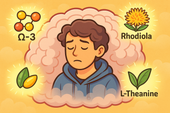
Brain Fog and Body Dysmorphic Disorder: Can Nootropic Supplements Help?
Brain fog often accompanies Body Dysmorphic Disorder, clouding focus and deepening emotional fatigue. Nootropic supplements like L-theanine, Rhodiola, and CoQ10 can help restore mental clarity, balance neurotransmitters, and bring calm energy back to the mind 🌿🧠.
-

How Stress Hormones Like Cortisol May Worsen Body Dysmorphic Disorder
Chronic stress floods the brain with cortisol — the hormone that keeps you on high alert. In Body Dysmorphic Disorder, this chemical overdrive fuels anxiety, distorts self-image, and traps the body in survival mode. Calming cortisol helps restore both peace and perspective 🌿🧠.
-

The Role of Neurotransmitters in BDD—and How Supplements May Help
Neurotransmitters like serotonin, dopamine, glutamate, and GABA shape how people with Body Dysmorphic Disorder perceive themselves. When these brain messengers fall out of balance, perception distorts — but targeted supplements can help restore calm, focus, and emotional regulation 🧠🌿.
-

What Is Body Dysmorphic Disorder? A Deeper Look at the Mind-Body Connection
Body Dysmorphic Disorder (BDD) isn’t just about appearance — it’s about perception. When brain chemistry, trauma, and stress distort self-image, the mind begins to see flaws that aren’t truly there. Healing starts by calming the nervous system and reconnecting mind and body 🪞🧠.
-
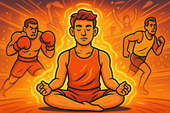
Keeping Calm in Competitive Sports: How to Train Your Mind, Body, and Chemistry for Peak Performance
Competitive pressure can overwhelm even the strongest athletes — but calm is trainable. By combining supplements like magnesium, L-theanine, and adaptogens with breathwork and mindset training, you can stay focused, balanced, and in control under any level of stress 🧠🏅.
-
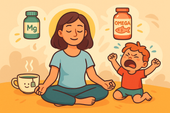
Supplements for Parents Facing Toddler Tantrums: Staying Calm When Little Emotions Run Wild
Toddler tantrums can drain even the most loving parent — but your calm is powerful. With the right supplements like magnesium, L-theanine, and ashwagandha supporting your nervous system, you can stay patient, grounded, and kind, even when emotions run high 🧸🌿.
-

Workplace Stress and Anger Management Support
Workplace stress can quickly turn into frustration — but calm is a skill you can train. By combining supplements like magnesium, L-theanine, and adaptogens with breathwork and mindset tools, you can stay focused, patient, and emotionally grounded no matter how intense the office gets 💼🌿.
-

How to Stay Patient With Family During Stressful Holidays
Holiday gatherings can stir up old stress and test your patience — but calm is possible. With nervous system support from magnesium, L-theanine, and adaptogens, plus mindful breathing and clear boundaries, you can stay centered, kind, and grounded even when family chaos unfolds 🎄💞.
-

Supplements to Keep Calm During Traffic Jams
Getting stuck in traffic doesn’t have to ruin your mood. With calming supplements like magnesium, L-theanine, and ashwagandha, you can train your body to stay relaxed and focused behind the wheel — turning gridlock into a moment of grounded patience 🚗🌿.
-
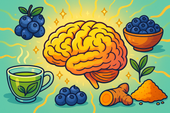
The Role of Antioxidants in Healing Brain Stress from Dissociation
Antioxidants protect the brain from the oxidative stress caused by trauma and dissociation. By neutralizing free radicals and supporting mitochondrial recovery, they help restore clarity, focus, and emotional balance — allowing the mind to heal at the cellular level 🌿🧠.
-
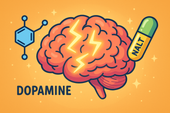
N-Acetyl L-Tyrosine (NALT) for Supporting Mental Clarity
N-Acetyl L-Tyrosine (NALT) fuels dopamine production — the neurotransmitter of focus and motivation. By supporting brain chemistry during stress, NALT helps restore mental clarity, energy, and alertness, making it easier to think clearly and feel present again ⚡🧠.
-

How Ginseng May Improve Focus and Energy in Dissociation
Ginseng helps combat the mental fatigue and fog that often come with dissociation. By supporting mitochondrial energy, balancing neurotransmitters, and regulating cortisol, it gently restores focus, motivation, and emotional presence — helping the mind reconnect with clarity and strength 🌿⚡.
-
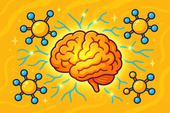
Phosphatidylserine and Dissociation: Supporting Cognitive Function
Phosphatidylserine helps calm the stress response by balancing cortisol, the body’s primary stress hormone. By lowering cortisol spikes, it protects memory, focus, and emotional stability — restoring clarity and mental presence for those struggling with dissociation 🧠🌿.
-
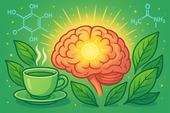
Can Green Tea Extract Help with Dissociative Brain Fog?
Green tea extract may help lift dissociative brain fog by supporting neurotransmitter balance, reducing inflammation, and enhancing energy at the cellular level. With its key compounds EGCG and L-theanine, it promotes calm focus, clarity, and emotional presence — helping you feel more alert and grounded 🍵🧠.
-
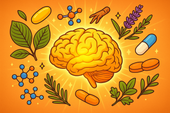
Building a Natural Supplement Stack for Dissociation Support
Building a supplement stack for dissociation means nourishing the brain and body back into communication. By supporting neurotransmitters, gut health, and energy balance through nutrients like magnesium, omega-3s, curcumin, and probiotics, you can help restore clarity, calm, and connection — one layer at a time 🌿🧠.
-

Chamomile and Lavender for Dissociative Anxiety Relief
Chamomile and lavender work together to calm dissociative anxiety by soothing the nervous system and restoring emotional safety. Their natural compounds balance cortisol, enhance GABA activity, and activate the vagus nerve — helping you feel grounded, connected, and at peace again 🌿💜.
-
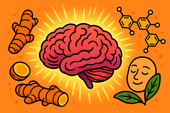
Curcumin for Inflammation and Mental Clarity in Dissociation
Curcumin, the golden compound in turmeric, does more than fight inflammation — it helps clear the mental fog often tied to dissociation. By calming neuroinflammation, balancing neurotransmitters, and supporting mitochondrial energy, curcumin can restore mental clarity, focus, and emotional presence 🌿🧠.
-
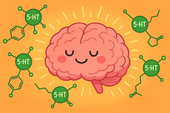
5-HTP for Dissociation: Supporting Serotonin and Emotional Stability
5-HTP helps bridge the gap between emotional numbness and stability by supporting serotonin production — the neurotransmitter that shapes mood, sleep, and sensory awareness. For people experiencing dissociation, 5-HTP may gently restore connection, presence, and emotional balance from the inside out 🌿🧠.
-
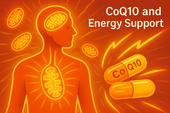
CoQ10 and Energy Support for People with Dissociation
Chronic dissociation often leaves the body running on empty — tired, foggy, and disconnected. CoQ10 helps recharge that system at the cellular level by restoring mitochondrial energy, reducing oxidative stress, and supporting the brain’s capacity to stay present. It’s energy medicine for both body and mind ⚡🧠.

















































